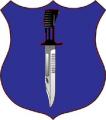Like many such documents from NATO members over the past decade, it tries to set a framework for dealing with an 'age of uncertainty' a world in which there is a wide range of possible threats to security and a lack of clarity about which might be the most serious....
Several points are noteworthy about this ranking: first, the threat from cyber attacks has been upgraded, in line with the remarks made by Iain Lobban, head of the government listening post GCHQ, at the IISS last week. Secondly, there is relatively little emphasis in the document on two elements which have tended to loom large in such threat assessments: nuclear proliferation and the dangers from fragile and failing states. Iran's possible acquisition of nuclear weapons is included in a paragraph that also mentions organised crime, and is not mentioned again. Thirdly, by referring specifically to a military crisis 'between states', the strategy appears to downgrade the risks from the kind of regional instability that has prompted UK military action on several occasions since the mid-1990s.
This is a document explicitly predicated on the need to deal with a fiscal deficit, with defence cuts to be announced tomorrow.....




 Reply With Quote
Reply With Quote



 - or it may point to an increasing number of career officers leaving in the future.
- or it may point to an increasing number of career officers leaving in the future.






Bookmarks